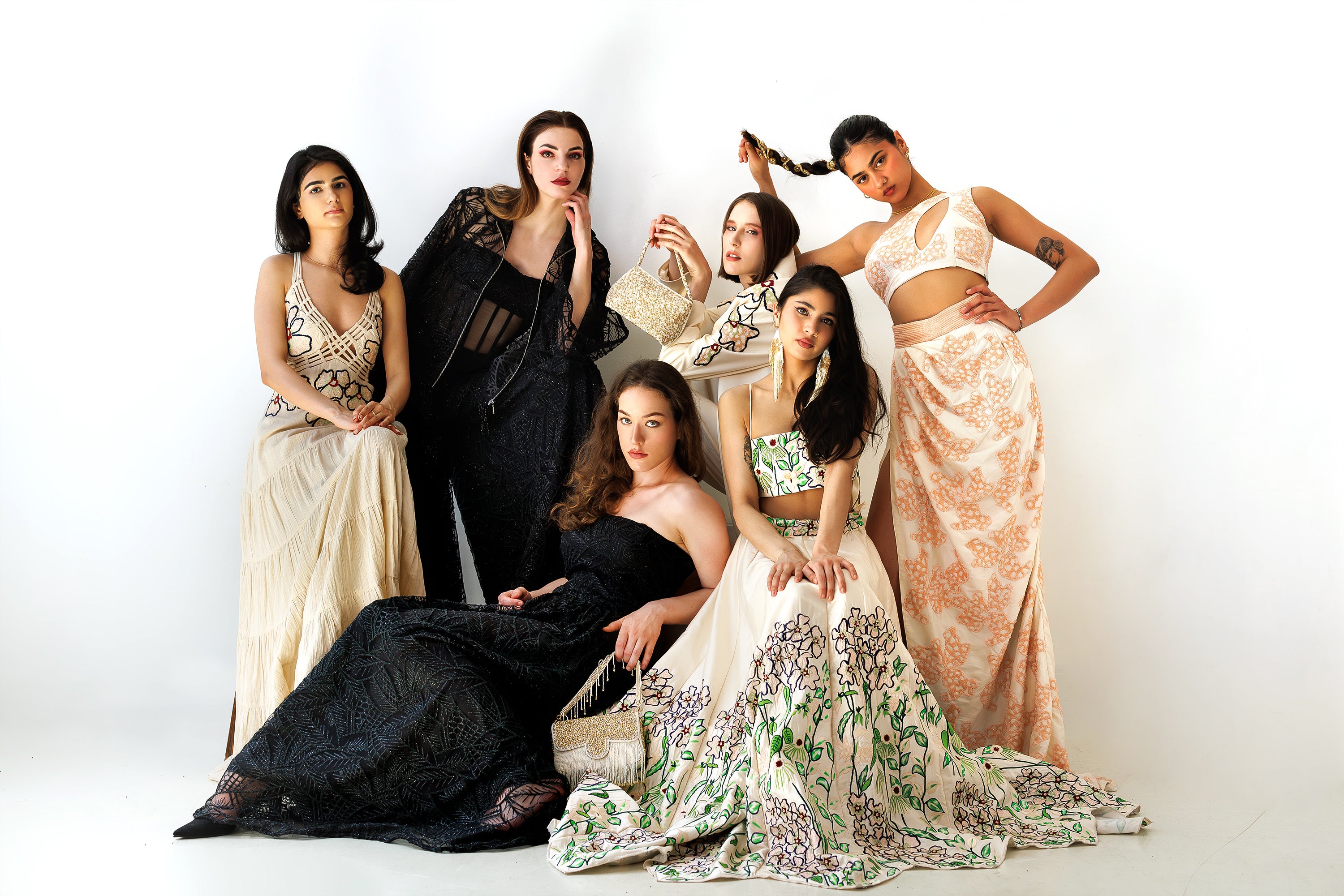Fashion is so much more than just what we wear—it’s a reflection of stories, cultures, and values. In a world where fast fashion often dominates, I’ve come to deeply appreciate how traditional embroidery can serve as a beacon of sustainability, heritage, and ethics.
For me, this connection became personal with my capstone collection, Rumi. Rooted in the events of the 1947 Partition, this collection uses hand embroidery as a tool to honor the resilience, artistry, and narratives of those who lived through one of the most defining moments in South Asian history
Empowering the Artists Behind the Art
One of the most rewarding aspects of creating Rumi was collaborating with artisans, many of whom are women living in rural communities. Their skill and dedication humbled me.
Ethical fashion isn’t just about the environment—it’s about people. Ensuring that these artisans were fairly compensated for their work was a non-negotiable part of the process. I wanted Rumi to stand for more than just beautiful garments; I wanted it to empower the hands that made them.
Choosing Slow Over Fast
Each piece in the collection was created thoughtfully, with a focus on durability and timelessness. Hand embroidery, with its intricate details, naturally lends itself to this philosophy—it demands time and patience, but the result is something truly special.
I hope these garments encourage people to embrace mindful consumption. When you wear something handmade, you’re not just wearing a product; you’re wearing a piece of someone’s heart and history.
Blending Tradition with Modernity
One of the challenges—and joys—of Rumi was finding ways to reinterpret traditional embroidery for contemporary fashion. I wanted the pieces to feel fresh and wearable while still honoring their roots.
Sustainability at Its Core
At its heart, Rumi champions sustainable practices. The collection emphasizes slow fashion principles, focusing on:
- Reducing Fabric Waste: Innovative design techniques ensure minimal material waste during production.
- Handcrafted Textiles: Each piece is intricately made by skilled artisans, valuing quality and durability over mass production.
- Beaded Embroidery: The collection incorporates labor-intensive beading, blending traditional methods with contemporary forms to honor artisanship.
Through these efforts, Rumi not only challenges fast fashion norms but also uplifts the communities and traditions that bring these pieces to life.
Crafting Stories Through Design
Rumi’s designs are more than garments—they are stories. The use of vibrant colors, intricate patterns, and layered textures draws inspiration from Sindhi embroidery traditions, where each motif carries meaning. Whether it’s floral patterns symbolizing growth or geometric designs reflecting harmony, Rumi transforms cultural motifs into wearable art.
A Vision for the Future
Rumi is more than a collection; it’s a movement to blend past and present, heritage and innovation. By bridging the gap between tradition and modernity, it paves the way for a future where fashion celebrates sustainability, craftsmanship, and cultural pride.
This collection stands as a powerful reminder that fashion can be a medium for storytelling, connection, and change. Through Rumi, you’ve created something timeless—an ode to culture, craft, and the environment.










